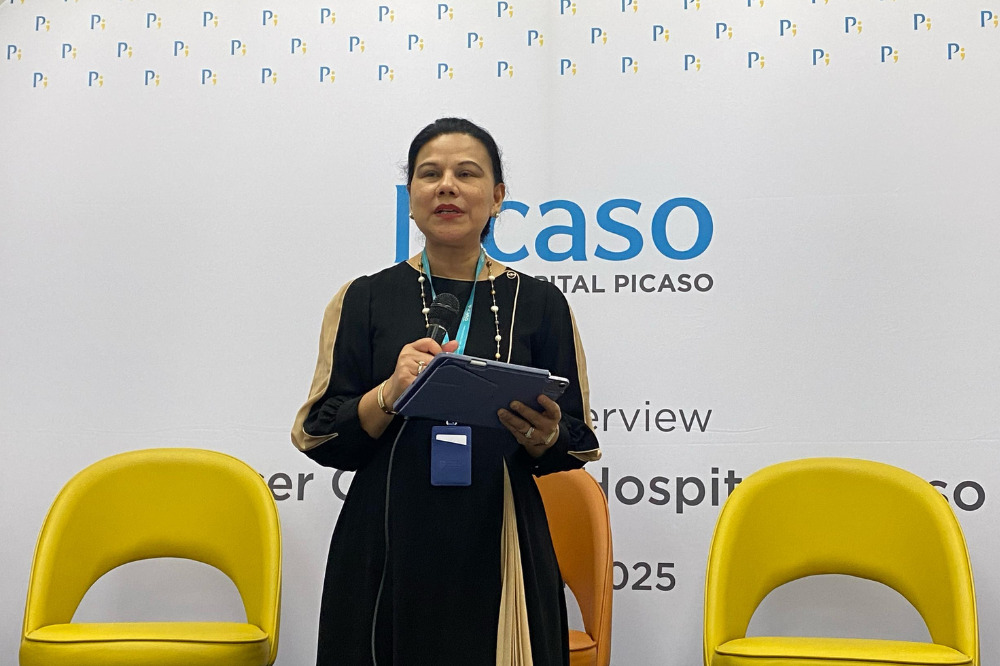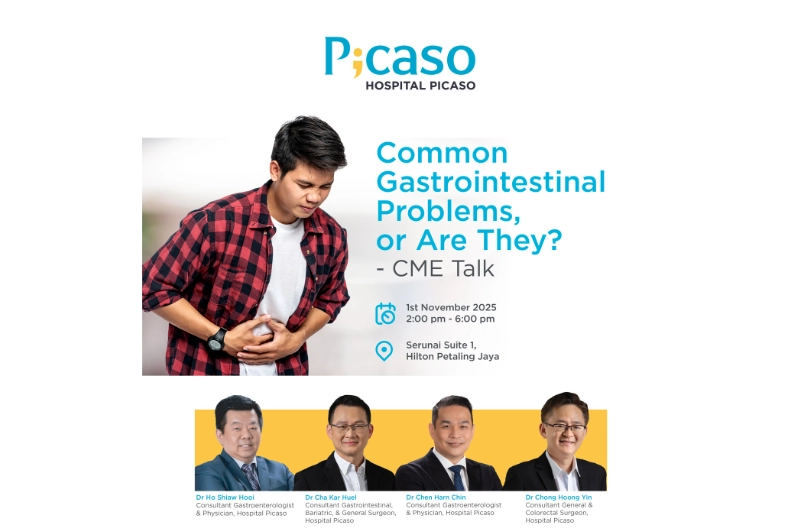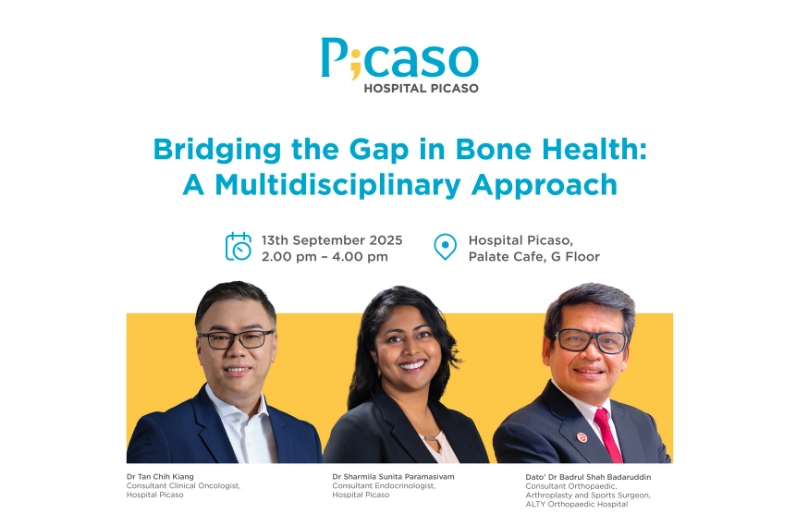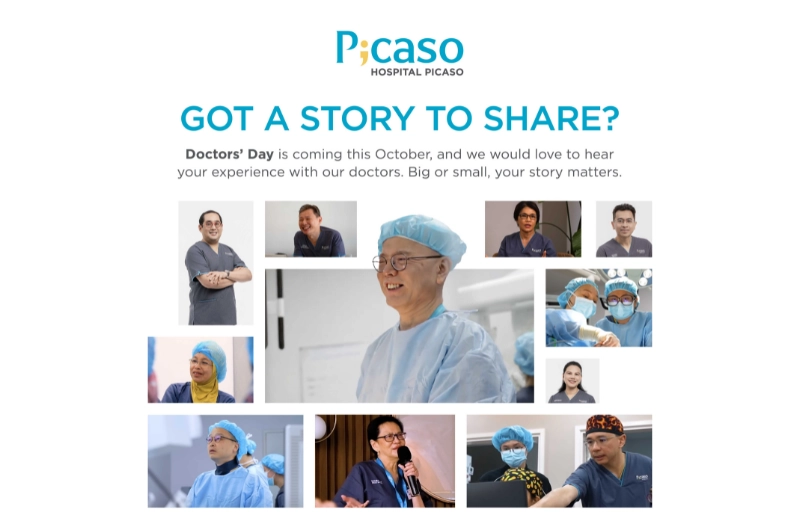Is vitamin D deficiency linked to cancer? Here's what an oncologist wants you to know
June 21, 2025

Hospital Picaso, Consultant Clinical Oncologist, Dr Mastura Md Yusof stressed that there was currently no solid evidence to confirm a clear link between low vitamin D levels and an increased risk of cancer.
VITAMIN D is commonly known for its role in maintaining healthy bones, but questions have arisen about whether a deficiency in this essential nutrient could also increase the risk of developing serious diseases like cancer.
Health professionals and researchers have long explored the broader impact of vitamin D on the body, with some attention now turning towards its potential link to cancer risk. Although online discussions on the topic are growing, the scientific community remains cautious in interpreting the data.
So, what does the current research actually say?
According to a health portal referencing the National Cancer Institute, possible links between vitamin D levels and cancer mortality have generally been studied across all types of cancer combined. Most meta-analyses of observational studies found that lower serum vitamin D levels were associated with higher overall cancer mortality.
One such analysis of 12 cohort studies reported a 14 per cent increase in cancer-related deaths among individuals with the lowest levels of 25-hydroxyvitamin D, compared to those with the highest levels. Similarly, another study involving around 4,000 cancer cases from the Prostate, Lung, Colorectal, and Ovarian Cancer Screening Trial revealed a 17 per cent reduction in cancer mortality among participants with the highest vitamin D levels.
Various studies also indicated an inverse relationship between vitamin D levels and several types of cancer, including prostate, multiple myeloma, colorectal, and breast cancer. However, expert warned that these findings did not amount to definitive proof, as the studies were largely observational and could not establish a direct cause-and-effect relationship.
As such, many concluded that more high-quality, long-term research was necessary to fully understand the complex role vitamin D might play in cancer development.
The more pressing question, however, is whether vitamin D is essential to the body in the first place.
The Mayo Clinic stated that vitamin D is indeed a vital nutrient required for calcium absorption and bone health. It noted that calcium, a major component of bones, cannot be effectively absorbed without adequate vitamin D levels.
In addition to its bone-related functions, vitamin D also supported immune health and played a role in muscle and brain cell function. But was it a miracle solution against cancer? Expert said no at least not yet, and cautioned against drawing premature conclusions without stronger scientific evidence.
Hospital Picaso, Consultant Clinical Oncologist, Dr Mastura Md Yusof
Hospital Picaso, Consultant Clinical Oncologist, Dr Mastura Md Yusof stressed that there was currently no solid evidence to confirm a clear link between low vitamin D levels and an increased risk of cancer.
"The current understanding is that there is still insufficient evidence to show a clear correlation between vitamin D levels and certain cancers.
“Researchers say further studies are needed, that’s usually the conclusion when you read about it, because the evidence remains inconclusive,” she said when met here at Hospital Picaso at Petaling Jaya.
Dr Mastura stated that much of the existing research remained small-scale and retrospective, and despite its popularity online, the topic lacked definitive scientific backing.
She emphasised that most studies ended with the conclusion that further research was needed, a clear sign that the evidence was not yet strong enough to confirm a direct connection.
She pointed out that no large, well-designed prospective studies had been conducted to follow individuals over time to assess whether their vitamin D intake or blood levels influenced their likelihood of developing cancer.
She said that such studies involving thousands of participants and rigorous monitoring were necessary to produce what the medical community referred to as ‘Level One’ evidence. Without this level of proof, no major global health authorities such as the FDA, EMA, or WHO had made formal recommendations regarding vitamin D and cancer prevention.

Vitamin D is indeed a vital nutrient required for calcium absorption and bone health. - CANVA
Dr Mastura stressed that most studies currently available online were either retrospective or based on smaller sample sizes, and did not meet the criteria for high-impact, peer-reviewed clinical guidance.
"So whatever is available out there, especially on the internet, isn’t really this type of study, most of them are either mouse studies or retrospective studies," she added.
However, Dr Mastura highlighted promising results for a specific group, in which breast cancer survivors.
She referred to a study presented in December at the San Antonio Breast Cancer Symposium, which found that women who had completed treatment for stage one to stage three breast cancer and were taking calcium with vitamin D during their follow-up showed improved outcomes and reduced risk of cancer recurrence.
She clarified that the study applied only to breast cancer survivors who were no longer in advanced stages of the disease. In these cases, oncologists could consider recommending calcium and vitamin D supplementation based on the available data.
However, she said she would not advise the same approach for patients with colorectal or other types of cancer, as the findings did not extend to those groups.
While vitamin D plays a crucial role in overall health, current evidence does not support a direct link between its deficiency and cancer development.
Observational studies have shown some associations, but no conclusive proof. For now, experts urge caution and call for further research before making definitive recommendations.
Sources
Back









